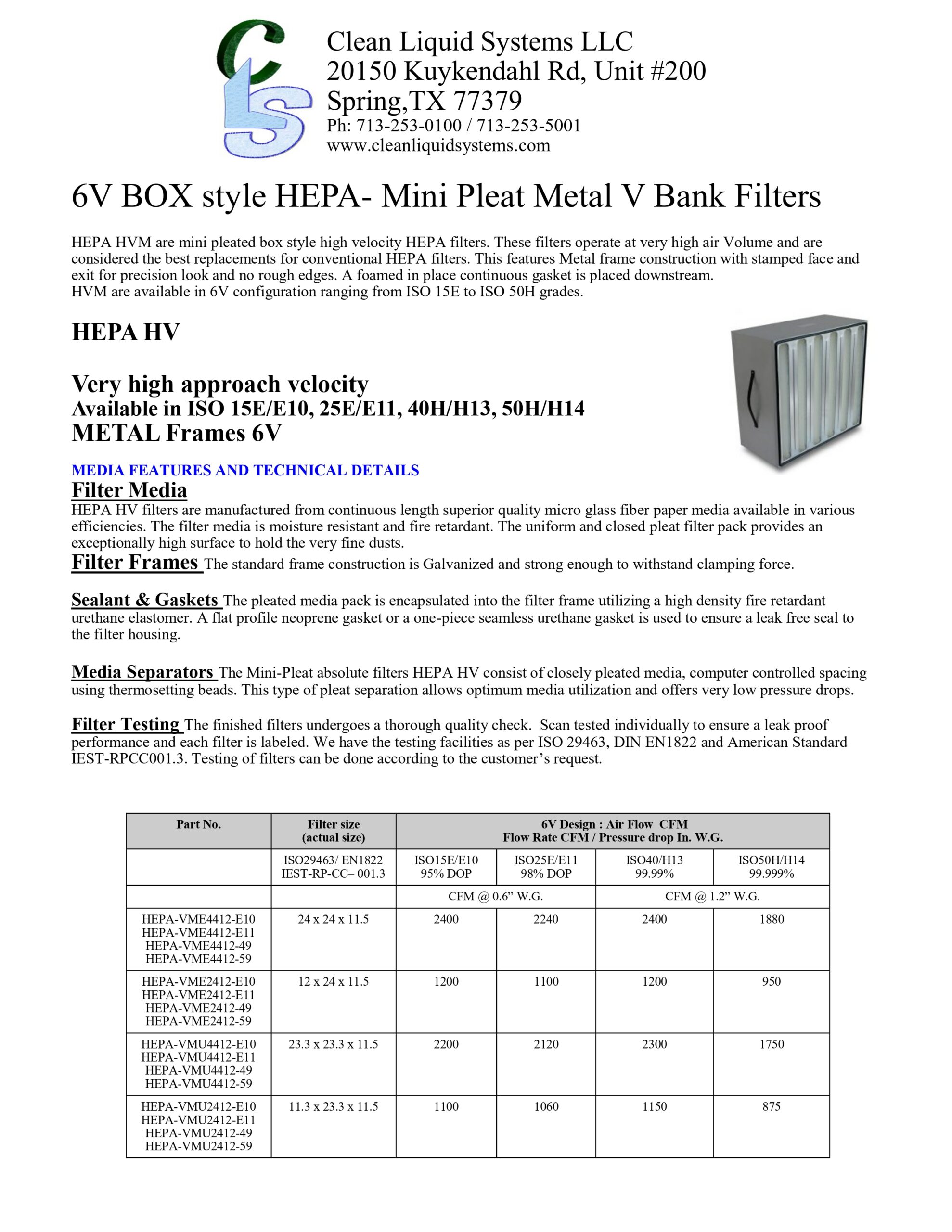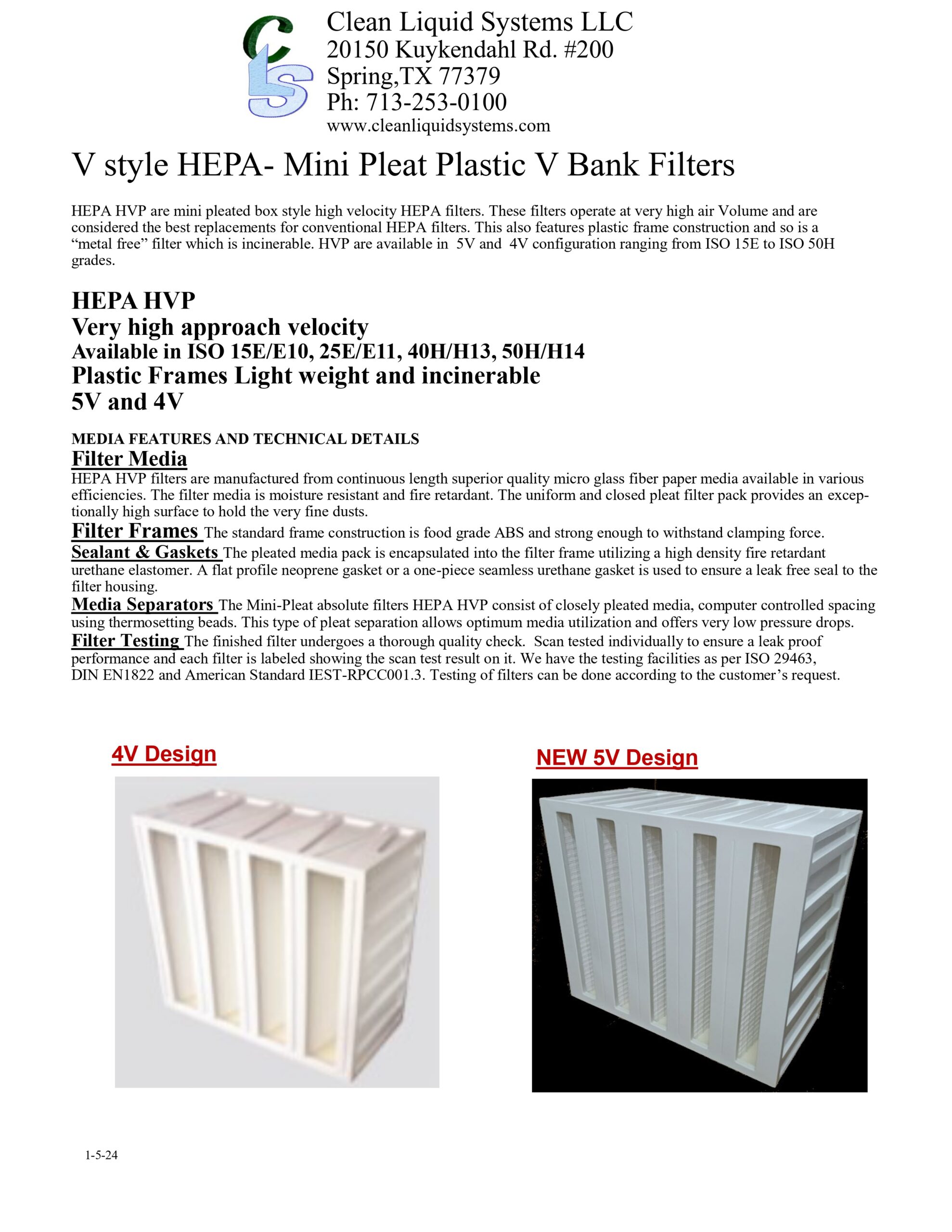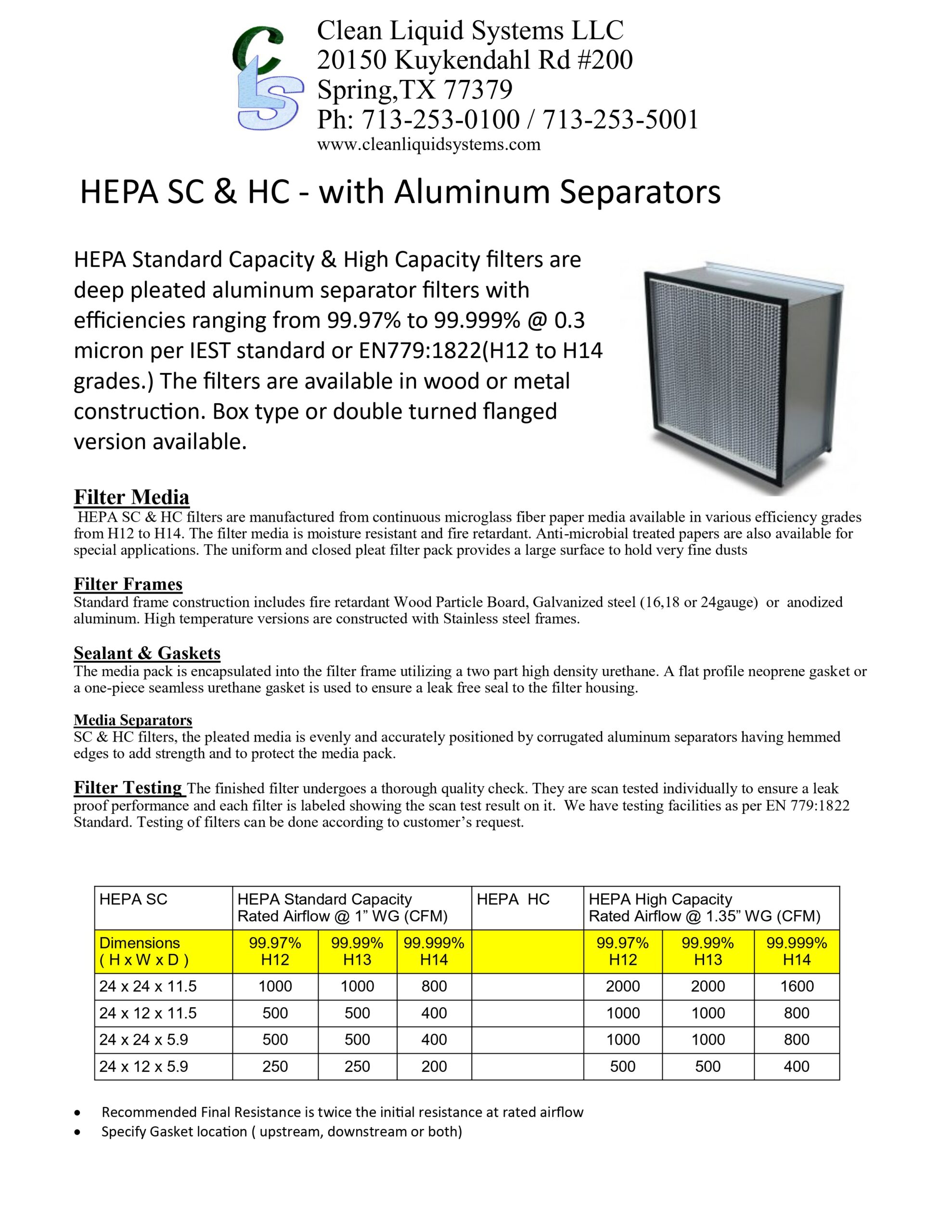Human health and wellness rely heavily on the air quality of our indoor environments. Indoor air quality solutions must eliminate contaminant particles from the air. The efficiency of HEPA filters, in particular, has made them popular in industrial and commercial facilities, such as labs, hospitals, and cleanrooms. On this page, you’ll learn more about HEPA filters, including their benefits and common industrial applications.
What Are HEPA Filters?
High-efficiency particulate air (HEPA) filters are pleated mechanical filters that can remove a minimum of 99.97% of airborne contaminants measuring 0.3 microns (µm), including dust, bacteria, mold, pollen, and other particles. 0.3 microns is the most penetrating particle size (MPPS), so larger particles are trapped with greater efficiency while smaller particles typically pass through the filter.
Benefits of HEPA Filters
HEPA air filtration offers several advantages that make it suitable for many potential applications.
No Harmful Byproducts
Another benefit of using HEPA air filtration is the lack of harmful byproduct emissions that might otherwise come from other types of filters. HEPA filters feature an eco-friendly design that doesn’t contribute any dangerous substances, keeping your indoor environment clean and sustainable.
Enhanced Product Quality and Consistency
Sensitive production environments like cleanrooms and laboratories need HEPA filtration to prevent contaminant particles from compromising product quality or test results. HEPA filters also minimize the particulates that can enter production equipment and disrupt operations. Thus, HEPA filters are essential to these industries’ ability to deliver consistently high-quality, cost-effective products.
Reduced Production Waste
By preventing contamination of sensitive products during fabrication, HEPA filters reduce production waste and support optimal operational efficiency.
Improved Employee Health, Retention, and Productivity
HEPA filters remove indoor pollutants that can cause respiratory irritation or illness among employees in a commercial or industrial environment. This contributes to greater employee satisfaction, productivity, and long-term retention. In hospitals, HEPA air filtration promotes the health and safety of patients and staff.
Industrial Applications of HEPA Filters
HEPA filters have many applications across a range of industries, including:
- Microelectronics: The manufacturing of dust-sensitive electronic parts, such as microchips, relies on HEPA and carbon filtration in cleanrooms.
- Optics: Commercial and military optics systems are also fabricated in cleanrooms, which use HEPA filtration.
- Precision Component Manufacturing: Many manufacturing facilities use HEPA filters to keep particulates from entering process equipment and potentially compromising precision components during fabrication.
- Testing & Animal Labs: Precious metal, mineral, and other compound testing labs rely on HEPA filters to eliminate particles from the air throughout the testing process.
- Automotive: R&D and painting and coating facilities frequently implement HEPA filters to prevent particles from compromising the integrity of automotive coatings or disrupting the R&D process.
HEPA Filters from Clean Liquid Systems
Although HEPA filters are not effective for trapping harmful fumes and toxic gases, they provide optimal protection against fine dust, dirt, and other particle contaminants. To improve the indoor air quality of your industrial or commercial facility, choose HEPA filters from Clean Liquid Systems. While some manufacturers sell “HEPA-like” filters, we offer genuine HEPA filters that perform to HEPA standards.
Call us at 713-253-0100 or contact us online with any questions about our products. Request a quote for custom HEPA filters for your application.



